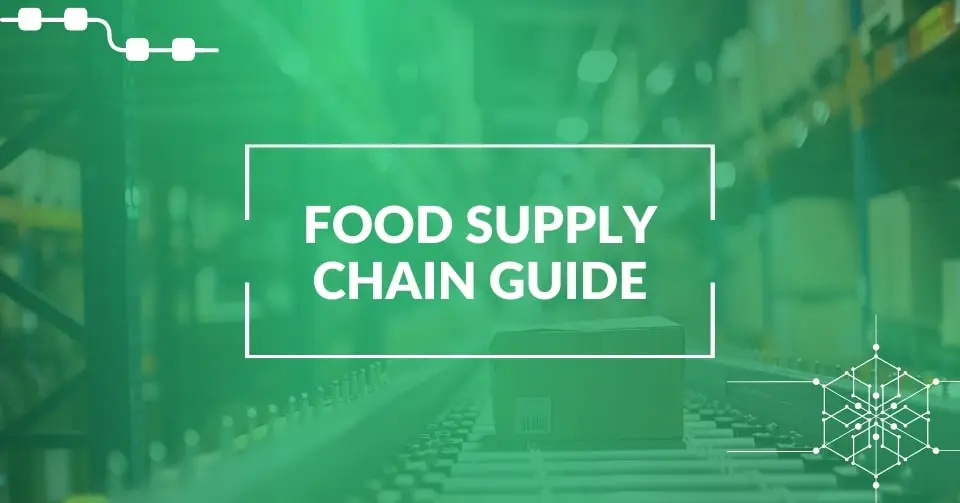Effective traceability systems enable businesses to track and monitor the journey of a product from its origin, through the manufacturing process, and finally to the end consumer. This comprehensive tracking is crucial not only for ensuring compliance with FSMA 204 regulatory requirements but also for maintaining consumer confidence.
In the event of a food safety issue, traceability allows for swift identification of the problem’s source, therefore minimizing potential harm to consumers and reducing the scope of product recalls.
Additionally, in today’s global market, where supply chains are increasingly complex and interlinked, traceability becomes indispensable in managing and verifying the authenticity and origin of products, thus helping in combating counterfeiting and ensuring ethical sourcing practices.
Try it out today!
The following are strategies to develop and implement a Traceability and Crisis Management Plan to comply with SQF Code element 2.6.2:
- Establish the methods to identify the product: Develop an identification process for raw materials, ingredients, packaging, work in progress, rework and finished products. Ensure the methods include all stages of the process: receiving, materials storage, manufacturing, packaging, finished goods storage and shipping.
- Management Responsibilities: Assign responsibilities related to the methods for traceability. This procedure involves roles in Quality Assurance, Receiving and Shipping.
- Establish Methods for Traceability: Document and implement a traceability system that allows you to cover product one step back (supplier) and one step forward (customer) Record the receipt of each of the goods received, processed and shipped.
- Test the Traceability Methods: Establish recovery threshold for ingredients (take into account yield loses) and final products. Conduct a traceability exercise at a minimum once a year.
- Keep detailed Records: Keep detailed records of goods received, processed, and shipped.
In my experience, automating the traceability process provides numerous benefits, including enhanced accuracy, increased efficiency, and improved compliance with SQF and regulatory requirements. Automation reduces the likelihood of human error, ensuring that data related to product tracking and history is precise and reliable. This precision is crucial in quickly pinpointing issues in the supply chain, leading to more effective recall management and risk mitigation.
Additionally, automated systems streamline operations, freeing up valuable human resources for more complex tasks and strategic thinking. They also facilitate real-time monitoring and reporting, which is essential in today’s fast-paced, compliance-driven business environment. By automating traceability, companies can respond more swiftly to market changes, maintain higher standards of quality assurance and strengthen consumer trust in their products.
In conclusion, the implementation of an effective traceability system, particularly one that is automated, stands as a cornerstone in modern supply chain management. It not only ensures adherence to FSMA 204 and SQF Code requirements but also significantly increases consumer confidence in product safety and integrity. Through the Traceability Plan, businesses can rapidly identify and address the sources of food safety issues, therefore, reducing the risks to consumers and limiting the extent of recalls.
In the context of today’s intricate and globally spread supply chain, the role of traceability in verifying product authenticity and origin is more critical than ever, playing a key part in fighting against counterfeiting and upholding ethical sourcing standards. By adopting the strategies outlined in this article, businesses are not just enhancing their operational efficiency and accuracy but also taking a proactive stance in risk reduction, therefore positioning themselves to better navigate the complexities of the global market, maintaining high-quality standards, and secure enduring trust from consumers and stakeholders alike. The move towards automation in traceability processes is a strategic investment in the future, one that promises to yield substantial returns in terms of both product integrity and business resilience.
FAQs
Key components include the accuracy of data capture, the speed of tracing products one step forward and backward, and the reliability of crisis response mechanisms.
Businesses should integrate continuous compliance checks, utilize SQF and FSMA 204 specific checklists, and regularly update their systems and training according to the latest guidelines.
RFID tags, blockchain technology, and ERP systems are highly effective for automating traceability, offering real-time data tracking, enhanced accuracy, and efficient recall management. Read more about key traceability technologies in our detailed guide.
Smaller businesses can prioritize critical traceability components, seek scalable food traceability software solutions, or explore cost-sharing partnerships with other small entities in the supply chain.
Consumer demand for transparency and safety drives companies to adopt advanced traceability practices to maintain trust, marketability, and competitive advantage in the industry.






